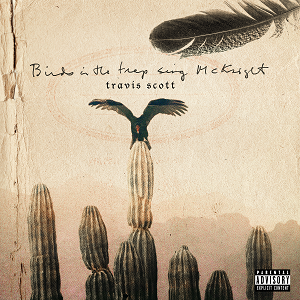Recently, a New York City tabloid attempted a cheap takedown of a local rapper. Known for regularly pandering to the lowest common denominator in a city that generally prides itself on rising above the fray, the publication-which-shall-remain-nameless portrayed Kaseem Ryan, known to his fans as Ka, as a cop-hating caricature, employing a gangsta rap bogeyman trope and right-wing tactic that should have been retired well before Black Lives Matter mattered.
People who came to the defence of the immensely talented artist and Brooklyn-based firefighter perhaps gave more attention to that sleazy hit piece than it deserved, but in the end the support was heartening for those of us who’ve long lauded him as one of the greatest living rappers. Our affection for Ka at tQ is nothing new. Inventive, introspective, and teeming with significance, his oft-understated albums have topped our year-end rap list roundups twice during my tenure here, invariably to the detriment of more obvious populist picks from major label types. Those who wish to do Ka ill deserve our scorn, as he truly embodies what makes New York the home for hip hop even as the genre stays global.
So the arrival of a brand new album from him is considered nothing short of an event. More so than last year’s claustrophobic and conspiratorial concept record Days With Dr. Yen Lo, Honor Killed The Samurai presents Ka foremost as a man with earthly concerns than as an untouchable poet. Not since GZA’s Liquid Swords has the juxtaposition of hood values and samurai codes been so effectively accomplished. The cinematic sample sources that comprise its intros, interstitials, and instrumentals will delight Wu devotees of old, and his weary yet wise delivery assuredly will too (‘Destined’).
Opener ‘Conflicted’ brings listeners into a Brownsville life, the harsh dichotomy of catching a body of becoming one. On ‘$’ Ka acknowledges his place in the rap game and his community, and the overwhelming feelings of duty it instils in him, while ‘Mourn At Night’ brings chills with its morose core. Lyrically, Ka stays as deep and real as Pusha, less prone to puns and punchlines but nonetheless adept at clever wordplay. ‘Illicit Fields’ dazzles kaleidoscopic, his seemingly breathless bursts perplexingly filled with both boasts and humility. Things get devastatingly heavy on ‘I Wish’, a dizzying descent through lamentations, legal system gripes, and street dreams deferred.
Lil Uzi Vert – The Perfect LUV Tape
A certified radio killer with two Billboard Hot 100 hits to his credit so far this year, the young rapper prominently represents today’s Sremmurd era trap pop style. Following his fruitful Vs. The World, this invigorating new tape serves as an easygoing soundtrack to those last lingering weeks of simmering summer heat. Triumphant opener ‘Do What I Want’ finds a rightfully confident Uzi on Cloud Nine enjoying his success and all that comes with it. He brings that self-assured swagger to ‘Original Uzi,’ yet shows an unexpected vulnerability on ‘You’re Lost,’ a lament for someone that no amount of fame and fortune can bring back to his life. While Uzi continues to demonstrate adeptness for catchy hooks, he also makes perfectly parallel production decisions. Zaytoven unveils an inviting Vincent Price horror house on ‘Money Mitch’, and an AFX-reminiscent head trip on ‘SideLine Watching.’ Elsewhere, ‘Ronda’ and the Snapchat-dismissive ‘Erase Your Social’ simultaneously exude tropical subtleties and trap sensibilities.
Ghost McGrady – 198X: RMXs
Mere months after his Fugue State tape for New Los Angeles spiritually brought back bits of the Melankolic back catalogue, the Koreatown denizen takes a decidedly different approach on this progressively retro follow-up. To get a sense of said modus operandi, just peep his ‘Un Baile’, which splices a downtuned Drake into a lost 80s R&B slow jam, somehow managing to make the contemporary selection more at home in the past. Ghost McGrady’s mischief continues with similarly time mangled mixes of modern familiars like ‘Unemployment’, which hitches fragments of Rihanna’s ‘Work’ to an Average White Band deep cut from 1976. The sun-warmed warble of ‘2020 Tokyo Olympics’ has a sort of chopped and screwed lethargy, syrupy slow yet altogether captivating and hypnotic. Those who’ve devoured fellow California beat scene producer Knxwledge’s prolific remix output at Bandcamp should waste no time in snagging a copy of this one.
Noname – Telefone
Brightness and hopefulness as a creative response to Chicago’s violent burden and blight deserves respectful attention. Indeed, the penetrating positivity of Donnie Trumpet & The Social Experiment’s Surf and Chance The Rapper’s Coloring Book was bound to produce further fungi and fruit. Whether this performance poet’s project falls into the former or latter category depends much on your assessment of either record. Shimmering and snappy, Telefone sets an artificially sweet tone for her caloric and wordy flows (‘All I Need’). Having come to the attention of indie hip hop listeners by way of placements on tracks by Chance and Mick Jenkins, Noname adopts a similar jazz-adjacent tip which, at its rare best, generates the wondrous ‘Forever’. Still, the most frustrating thing about this debut tape is how often its protagonist finds herself crowded out by her guests, a parade of pals and peers that inadvertently dilute and drown out her promising voice.
Rae Sremmurd – SremmLife 2
Given how irrefutably influential the scrappy duo’s anthemic debut turned out to be on the contemporary rap landscape, this utterly inconsequential sequel simply astounds for its middling qualities. While that first album effectively sparked trends and catchphrases, SremmLife 2 quizzically relies on the cultural embers of others for warmth (‘Black Beatles’, ‘Shake It Fast’). More residue than substance, ‘Start The Party’ and ‘Came A Long Way’ load up on OVO benchwarmer-levels of referential boredom, not just in terms of vibe or sound, but the actual unenthused performances of both Swae Lee and Slim Jxmmi. Attempting to break from the teen stereotypes unfairly affixed to their brand, Rae Sremmurd seem to aspire to the mature shine of their trap elders, all of whom trounce them thoroughly here. Gucci Mane and Juicy J’s respective killer appearances dwarf the lazy meme references of their juniors. Veteran partystarter Lil Jon provides a remedial masterclass for them on ‘Set The Roof’.
Ras G – The Gospel Of The God Spell
When it comes to beat tapes, few acts can match the output and quality of Ras G. His multi-volume Raw Fruit series remains a conceptual triumph of crispy vibes and dubby echoes, while his 5 Chuckles collaborations with rapper The Koreatown Oddity balance stoner humour with sobering technical talent. This time around, his sample sources purportedly consist of gospel records found at his record store day job. Nowhere near as heavy handed as Kanye’s Pablo psalms, the tape frequently obscures Christian religiosity and easy wins for the sort of beauteous spaced out explorations in sound Ras has become known for. For him, the tape serves as an interfaith conversation, often infusing Ancient Egyptian and African concepts into the mix (‘Atom, Aten and Adam’). Soundsystem sirens, pitched-up praise, and a persistent yet sparse organ riff come together in a trippy melange for ‘The God Spell (Cognitive Dissonance)’, while ‘Plagerism Of Kemet’ slowly grinds down its fractured wordless hymn.
Red Pill – Instinctive Drowning
Named for a clinically acknowledged near death phenomenon, the Michigan rapper’s boisterous yet reflective second solo album opens with a fourth-wall breaking reclamation of life (‘The New Normal’). Coping with a history of alcoholism, poverty, depression, a maternal lineage that haunts and informs this record, Red Pill aspires to turn his woes into art. Sometimes it works; other times it falters. Such is the curse of this verbose indie emcee, unable to tame the hirsute savagery of his undeniable skills into a majestic manageable mane. What results is something ironically imperfect, from the brutally honest babbling of ‘Gun & Tonic’ to the awe-inspiring damage narrative of the deeply compelling title track. Ill Poetic plunders the crates for Instinctive Drowning’s eclectic beats, often genre-hopping within the confines of a single track by way of sampling (‘All Along The Shore’, ‘Four Part Cure’). But he’s an instrumentalist on an album in need of a producer.
Travis Scott – Birds In The Trap Sing McKnight

Held to an originality standard arguably higher than anyone else in the genre, Travis Scott took his critical lumps for last year’s chameleonic Rodeo. As before, he mines his iPhone address book for collaborators including The Weeknd and Young Thug for his latest. But save for when he trend-hops the summer dancehall wave for a remix of K. Forest’s ‘Guidance’, this more cohesive and less commercial follow-up makes it harder to accuse the artist of lacking a musical identity, its hazy synths and hedonistic themes melding into a consistent sound with clear influences and few peers. His voice a silvery digital bath of post-Akon post-Cudi cool, Scott slides through with purpose concealed behind a nonchalant facade (‘Lose’). On cuts like ‘Beibs In The Trap’ and the shivering standout ‘Sweet Sweet’, he wears the bad guy narrative like an upscale brand, an uncouth couture meant for luxuriating though night after narcotic night of excess.
YE Ali – TrapHouse Jodeci
Hip hop fluidity means that Drake can have the biggest rap song in the world by eschewing ghostwritten bars and instead affecting a faux-patois. Thus, our inability to clearly differentiate R&B from rap nowadays makes it prime time for this passable Indiana artist to throw his New Era into the ring. It’s obvious that YE Ali sees himself as a singer first, albeit AutoTune-assisted one – as if that silly distinction matters anymore (‘Menu’, ‘Flights & Break Ups’). Still, once he’s lowriding through the muted funk of ‘Rodeo’ or linking with radio reliable K Camp on the ostensible single ‘What To Do’, that line blurs. Overall, he seems to be feebly grasping at virtual straws, transforming at least thrice on the schizophrenic trap cut ‘Fulla Diamonds’. Be it loverman or jumpman, he can’t quite decide where he fits in. Having proved himself a sufficient OVO impersonator on last year’s Block Party tape, Dougie F demonstrates how its done on ‘Wet X2’.
Young Thug – No, My Name Is JEFFERY
The Atlanta favourite’s third tape so far this year had a lot to live up to, following the crowd pleasing Slime Season 3 and its unjustly underrated cousin I’m Up. Thankfully, this lean release showcases several of the cult rapper’s strengths and none of his on-record weaknesses. ‘Wyclef Jean’ kicks off like an alternate reality T-Wayne remix before easing into something more wobbly and dubwise. Speaking of nasty freestyles, ‘Future Swag’ continues Thugger’s fine tradition of stream-of-conscious lewdness. Twice he executes the cute ploy of naming a track after an artist while featuring said artist elsewhere on the tape. ‘Guwop’ counts the namesake’s trap children Quavo, Offset, and Young Scooter, while the freed Gucci himself shows up in all his finery on ‘Floyd Mayweather’. Wyclef’s familiar island croon opens and weaves through the vexingly titled ‘Kanye West’, a late highlight on an otherwise solid if short outing.



